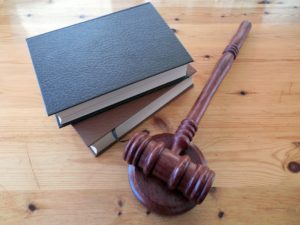When you hear the word trial, you probably get a certain image in your mind. Perhaps you picture a jury box with 12 random citizens; an intimidating-looking judge in a black robe; and an attorney jumping up and shouting, “I object!”
An objection is made when an attorney believes that a rule of criminal procedure was violated by something that the opposing attorney or witness did or said. There are many reasons to object in a courtroom, but the judge has the ultimate authority whether to sustain or overrule it. If the judge sustains an objection, he agrees with the objecting attorney and will require the other attorney to address the issue in a way that complies with criminal procedure. If he overrules the objection, the judge believes that the evidence was properly admitted into court and the trial may proceed.
It can be confusing for a defendant to hear his Trenton criminal defense trial attorney objecting and being objected to during the course of a trial. It’s helpful to know the most common objections you may be exposed to.
Top Four Common Objections
- Hearsay. Undoubtedly, Hearsay is one of the most common objections in a trial. That’s because it applies to many situations but also has many exceptions. Hearsay is an out of court third-party statement, offered in order to prove the truth of the matter. For example, if a witness began to say “Bob told me that he saw…” an opposing Trenton criminal defense trial attorney would quickly object to that statement because it would be hearsay. To make matters complicated, there are plenty of exceptions that would allow hearsay evidence to be admitted in certain situations.
- Leading. Only during cross examination may an attorney ask the witness leading questions. On direct, the witness must be asked open-ended questions that do not lead to a specific answer. If the attorney asks his own witness the question “You went to the party that night?” he will likely be objected to. Instead, he should phrase the question as “Where did you go that night?”
- Speculation. Speculation is when a witness is called to guess about a situation that they do not have first-hand knowledge about. This could include guessing what another person was thinking, why someone did what they did, or what would have happened if “X” occurred.
- Relevance. An attorney’s question or witness’s answer will be objected to if the opposing attorney believes it has nothing to do with the merits of the case.
Mark Catanzaro – A Skilled Criminal Defense Trial Attorney in Trenton
There are several types of objections, but you are bound to hear these top four during the course of a trial. Your Trenton criminal defense trial attorney can further explain these objections and more so that you aren’t confused when you hear them.
If you don’t have a Trenton criminal defense trial attorney but need one, contact Mark Catanzaro today to set up your free consultation and have your questions answered.
